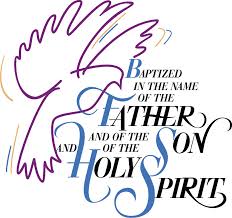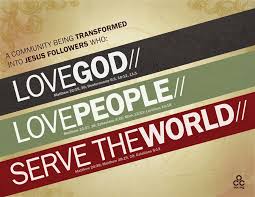
15th May 2022

Gospel reading: John 13:31-35
vs.31 When Judas had gone from the upper room, Jesus said:
“Now has the Son of Man been glorified, and in him God has been glorified.
vs.32If God has been glorified in him, God will in turn glorify him in himself, and will glorify his very soon.
vs.33 My little children, I shall not be with you much longer.
You will look for me, and, as I told the Jews, where I am going, you cannot come.
vs.34 I give you a new commandment: love one another;
just as I have loved you, you also must love one another.
vs.35 By this love you have for one another, everyone will know that you are my disciples.”
*******************************************************
We have four commentators available from whom you may wish to choose .
Michel DeVerteuil : A Trinidadian Holy Ghost Priest, and former director of the Centre of Biblical renewal .
Thomas O’Loughlin: Professor of Historical Theology, University of Northampton
Sean Goan: Studied scripture in Rome, Jerusalem and Chicago and teaches at Blackrock College and works with Le Chéile Schools.
Donal Neary SJ: Editor of The Sacred Heart Messenger
*******************************************************
Michel de Verteuil
Lectio Divina: The Year of Luke
www.columba.ie
General Textual Comments
It is traditional in the Church that on the 5th and 6th Sundays of the Easter season, the gospel readings are taken from the long discourse which St John tells us Jesus had with the apostles at the Last Supper, and which is recounted from chapter 13:31 to the end of chapter 17. This is very deep teaching, so you must make a special effort to experience that it is also down-to-earth, and helps you to understand your own life.
This year’s first extract is the beginning of the discourse. It is in clearly distinct sections:
Verses 31 and 32 are the response of Jesus to the departure of Judas. You may have difficulty interpreting the word “glorify” which occurs several times. It is a biblical term indicating the victory of God’s power. It is significant that “hallowed” in the first petition of the Our Father means the same thing.
In verse 33, Jesus says clearly that he is at a point in his life when he must make his journey alone. The saying is repeated and clarified in verse 36, which is not included in this passage, but which you may want to look up in a Bible.
In verses 34 and 35 the commandment of love – which is the dominant theme of the last discourse – is enunciated for the first time. Read the verses carefully, letting them touch you as if you were reading them for the first time.
Prayer Reflections
“The tyrant dies and his rule ends. The martyr dies and his rule begins.”…Kirkegaard
Lord, we thank you for the great martyrs of our time,
Gandhi, Martin Luther King, Archbishop Romero.
Those who put them to death have long been forgotten,
gone like Judas into the night,
but they have been glorified and you have been glorified in them.
Lord, there was a time when we struggled with some sin for several years,
lust, jealousy, racial prejudice, the inability to forgive, the inability to self control
Then one day we knew that this Judas had gone and left us,
that we had been victorious or rather that you had been victorious in us,
and like Jesus we knew that even if we face a great crisis,
you will be with us and soon bring us to safety with you.
Lord, forgive us that as a Church community we make compromises
in order to please powerful people, fearing that otherwise they may harm us.
Teach us that sooner or later Judas goes away
and if our trust has been in our fidelity to your teaching,
you will be glorified in us and you will glorify us in yourself.
Lord, all of us who have charge of young people,
as parents, teachers, youth leaders or spiritual guides,
help us not to be possessive as Peter was with Jesus,
wondering why we cannot accompany them in all their crises,
and looking for them even though they tell us clearly that where they are going we cannot come.
Lord, there comes a time in life for each of us, as it did for Jesus,
when we have to make decisions alone:
 • to marry;
• to marry;
• to enter religious life or the seminary;
• to run for public office;
• to accept terminal illness.
– To volunteer some service
Often before, we have had to distance ourselves from those who did not love us.
Now we say to those dearest to us
that where we are going they may not want to come.
Lord, we thank you for the time that we experienced selfless love for someone,
for one of our parents, a friend, a leader in our community.
At that moment it was as if we had understood love for the first time;
we had received a new commandment to love others as we had been loved.
Lord, there is a history of love in the world,
so that when we see people who are able to reach out to one another,
we know that they have experienced love themselves.
“Non-violence is the greatest and most active force in the world.” …Gandhi
Lord, when people love unconditionally, as Jesus did,
everyone knows that your disciples are at work in the world.
************************************************
Thomas O’Loughlin
Liturgical Resources for the Year of Luke
www.Columba.ie
Introduction to the Celebration
The Paschal Candle burning before us alerts us to the fact that on these Sundays after Easter we are trying to grasp the mystery of what it means to follow Jesus who has risen from death and who is sharing his new life with us. Jesus has called us out of darkness, he has renewed us in baptism, he calls us to give new life to the world, and he beckons us to the glorious city beyond history where we shall be one with him in praising the Father.
Homily notes
1. Some words keep corning up in Eastertime: ‘new life,’ ‘new creation,’ ‘renewal,’ ‘new birth,’ ‘baptism,’ ‘being a baptised people,’ and you could add many more to the list. However, these words all suffer a burn-out in meaning for people. Baptism is just a fancy name for a christening which is just a party after a new baby – and even those who are regular church-goers will have been to many such family events where they know that christening is an event and that’s the end of it. As for ‘new‘ and ‘renewal‘, these words belong to the stock and trade of advertising. The effect of this exhaustion of meaning within words is that some of our most basic beliefs about the life that the Christ shares with us become, when expressed in phrases like ‘he gives us new life‘, sounds that are indistinguishable from trite cliches.
2. So can meaning be restored? The two great means of restoring religious symbols – and words are just one kind of symbol – are
(1) re-inventing rituals which capture the imagination anew, and
(2) reflection which brings those symbols into new alignments within our minds (so baptism is not linked to a private family occasion nor new life with someone offering a ‘lifestyle makeover’).
3. If the theme of new creation, new life through baptism is to be explored and given back its ‘saltiness‘ then the homily and the rest of the ritual need to gel together. So make more of the sprinkling with water at the beginning that involves movement and action and touch by all concerned: effective ritual always needs at least these components if it is to be affective.
4. At the homily time ask people to reflect with those near them what saying ‘We are a new creation’ means to them?
*Does it have implications for how we treat one another?
*Does it mean replacing the instinct for vengeance with that of forgiveness? *Does it have any implications for how responsible we must be with the earth’s resources and care of the environment?
Such questions touch some of our most deeply held beliefs in contemporary western societies – areas of belief where often we do not want the light of Christ to penetrate lest it cause us discomfort. But it is only in discomfort that the basic symbols of our faith can be renovated from flippant phrases into life-giving words.
*****************************************************
3. Sean Goan
Let the reader understand
www.columba.ie
Gospel
 This gospel is taken from John’s account of the last supper. It differs from the others because John leaves out any mention of the bread and wine and speaks rather of Jesus washing the feet of the disciples. Our text begins with Judas departing the scene and continues with Jesus’ words to his disciples. He is explaining to them that the events that are about to unfold, i.e. his passion and death, are not a disaster but rather the culminiaton of his life’s work. His faithfulness to his task of revealing God has brought him to this point and so God is glorified in all that will unfold. Even though it appears at first sight that evil triumphs, nothing could be further from the truth for on the cross Jesus will reveal the glory of God who has ‘loved us to the end’. That is why the commandment that Jesus now gives is so important. The disciples must love one another in the way that Jesus has loved them. This is what his life’s work has been: to draw the disciples into the relationship of love that Jesus shares with his Father.
This gospel is taken from John’s account of the last supper. It differs from the others because John leaves out any mention of the bread and wine and speaks rather of Jesus washing the feet of the disciples. Our text begins with Judas departing the scene and continues with Jesus’ words to his disciples. He is explaining to them that the events that are about to unfold, i.e. his passion and death, are not a disaster but rather the culminiaton of his life’s work. His faithfulness to his task of revealing God has brought him to this point and so God is glorified in all that will unfold. Even though it appears at first sight that evil triumphs, nothing could be further from the truth for on the cross Jesus will reveal the glory of God who has ‘loved us to the end’. That is why the commandment that Jesus now gives is so important. The disciples must love one another in the way that Jesus has loved them. This is what his life’s work has been: to draw the disciples into the relationship of love that Jesus shares with his Father.
Reflection
The strange sounding place-names of the first reading and the exotic symbolism of the second reading might seem far removed from our every day lives as we sit in the familiar church pew on a Sunday morning. So is there any point at which we can connect with these texts? If we have ever heard a homily or read a story which gave us new heart, or if we have ever been moved at the sight of a tear being gently wiped from the face of someone in sorrow, then these readings can speak to us. For they are all about encouragement. All of us from time to time need to know that we are not on our own, and we need also to be reminded that any words of encouragement that we can find for another are rarely wasted.
****************************************************
4. Donal Neary S.J.
Gospel reflections
www.messenger.ie/bookshop/
The glory of God in St John’s gospel
is another word for his love.
We have types of love, and for most of us we find it in our lasting friendships, our spouses, our partners, our family – those without whom life would be so much the poorer.
Real love transforms. Opens the heart more and more. We get out of ourselves in real love – caring, forgiving, getting over things. In all sincere and outgoing love between any two people, God is present. Love brings God alive in us. Not the love that is in name only and uses each other. But love that sees the other as more important than myself.
We say, ‘love made him’. Parents say –‘ I hope they find friends who will bring the best out of each other’. Mauriac writes- “To love someone is to see a miracle invisible to others.” The example of Jesus can help us at times when it can be hard to see goodness even in those we love.
Real love heals. Only love makes the best out of the worst. In concentration camps the survivors were often those who had love to remember or go back to. Even when things go very badly in life, the forgiveness of love can help us move forward.
Lord, help me to be truly grateful for love in my life.
___________________________